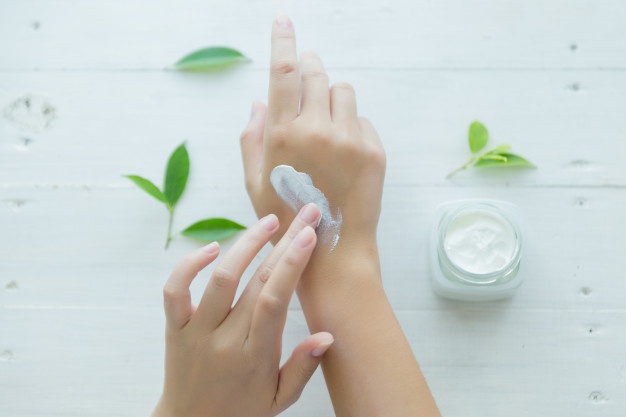Skin lightening
is skin lightening Skin lightening or bleaching Skin bleaching procedure cosmetic aims to lighten dark areas of the skin or access to the color of a more harmonious skin, this procedure is followed to improve the appearance of dark spots such as moles and freckles (1).
Skin lighteners work by reducing the concentration or production of melanin in the skin. Melanin is the pigment that gives skin its color and helps protect it from the sun. The main techniques used for lightening include skin-lightening creams, and laser treatments (1).
Skin lightening creams
1. Prescription skin lightening creams:
These creams are powerful and require a prescription to be used. These medications usually contain one or a combination of the following active ingredients (1):
- Hydroquinone: This is the most widely used skin-lightening ingredient sold in the United States (2).Hydroquinone is used to lighten dark patches of skin caused by pregnancy, birth control pills, hormonal medications, or skin injury.
This is done by blocking the process that leads to skin discoloration (3).
Over-the-counter (OTC) skin-lightening products can contain up to 2% hydroquinone, while higher concentrations (4% – 6%) require a prescription (2). - Retinoic acid: Retinoids lighten dark spots – caused by exposure to sunlight – by eliminating them and reducing melanin production. It also works to speed up the life cycle of surface skin cells, accelerating their death and renewal process, thus making room for the growth of new cells underneath.
Generally, over-the-counter retinoids take about three to six months of daily use to notice a difference. As for prescription, patients may notice smoother, more even skin tone within six to eight weeks (4).
2. Over-the-counter skin-lightening creams often contain:
- Kojic acid : which is extracted from some types of fungi (2), and is used topically to treat a number of different cosmetic conditions. It has a brightening effect, as it inhibits and prevents the formation of tyrosine, It is an amino acid necessary for melanin production (5).
- Arbutin : One of the most widely prescribed skin lightening and depigmentation agents worldwide, It is derived from hydroquinone, but is less toxic, and is found naturally in the dried leaves of a number of different plant species such as cranberries. Arbutin competitively inhibits tyrosinase activity, but at non-cytotoxic concentrations (6).
- Vitamin C : A natural antioxidant, it prevents the formation of melanin by acting as a reference factor in the various oxidation steps of melanin formation.
- Vitamin E : A major lipophilic antioxidant. Experimental evidence has shown its photoprotective and anti-pigmentation effect, in addition to a significant improvement in melasma when a combination of vitamin E and C is used together.
Possible side effects: These
can include redness and swelling from irritation or inflammation of the skin, a stinging or burning sensation, scaling of the skin, as well as itching.
The dangers of skin-lightening products:
One of the main risks of using some skin-lightening products is the possibility of exposure to mercury. One study found that about one in four skin-lightening products made in Asia and sold outside the United States contained mercury (2).
Mercury is a toxic agent that can cause serious psychological, neurological and kidney problems, and pregnant women who use mercury-containing skin bleaches can pass mercury on to their baby (2).
Whatever option is used, it must be taken into account that the lightening process may be expensive and time-consuming, and its results cannot be guaranteed (1).
side effects:
Possible risks of skin-lightening creams that contain hydroquinone, corticosteroids, or mercury include:
- The skin becomes very dark or light.
- skin thinning,
- Visible blood vessels in the skin.
- scarring,
- Kidney, liver or nerve damage.
- Newborn malformations (if used during pregnancy).
When your doctor prescribes a skin-lightening cream, he or she will tell you directions for use, potential risks and how common they are (1).
Sources:
1. Cosmetic procedures – Skin lightening [Internet]. : Here
2. Gardner SS. Skin Lightening Products [Internet]. : Here
3. Hydroquinone Skin Bleaching Cream [Internet]. : Here
4. Edgar J. Retinoids for Anti-Aging Skin [Internet]. : Here
5. Gotter A. Kojic Acid: Side Effects and Benefits [Internet]. : Here
6. Sarkar R, Arora P, Garg KV. : Here


0 Comments